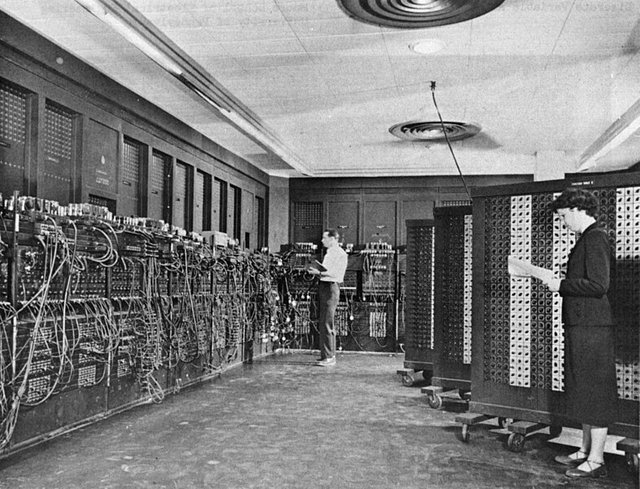A long time ago, before there were any computers, people used simple tools to help them count. One of these tools was called an abacus. An abacus is a frame with little beads that slide back and forth on wires. People would move the beads to add, subtract, or count numbers. It was helpful, but it still took a lot of time to solve big problems.
People then thought of how they could make machines that could perform their tasks much faster, more accurately, and better. And that was how the creation of the first computers started. These first computers were not like the ones we have today. They were really big and could occupy an entire room. They used special switches called vacuum tubes that turned on and off to help the computer make decisions. But because they were so big and used so much electricity, these early computers could only do simple things like basic math.
After a while, something cool happened. People invented transistors. These are tiny little switches, much smaller than the vacuum tubes, and they did the same job but much better. With transistors, computers could become smaller and faster. Computers didn’t need to be as big as a room anymore. Now they could fit on a desk.
But computers were still getting even better. Soon, scientists invented something called microchips or integrated circuits. These chips had lots of transistors all packed into one tiny piece. This made computers super powerful. Now, computers could do so many things like helping scientists figure out space problems, letting people type documents, and even playing simple video games.
Fast forward a few more years, and computers became personal computers, or PCs for short. These were small enough to fit in people’s homes. Kids could use them for homework, and families could use them to write letters or play games. Computers even started helping people talk to each other through something called the internet. This let people send messages instantly from one place to another, no matter how far apart they were.
Today, computers are everywhere, and these include laptops, desktops, and mobile phones, and they are more powerful than ever before. They can help us do so many things like watch videos, send messages, play games, search for information, and even help with jobs.
And computers keep getting better. Scientists are always working on new ways to make computers even faster and smarter. So, computers started as giant machines, but now they are tiny, fast, and super helpful. And the best part is they keep growing and changing, every day.
Computers have come a long way from where they started, and as they continue to grow and improve, they will keep making our lives easier and more exciting. The future is full of possibilities, and who knows what amazing things computers will help us do next?
Thank you so much for your time and continuous support.

Thank you, friend!


I'm @steem.history, who is steem witness.
Thank you for witnessvoting for me.
please click it!
(Go to https://steemit.com/~witnesses and type fbslo at the bottom of the page)
The weight is reduced because of the lack of Voting Power. If you vote for me as a witness, you can get my little vote.
Downvoting a post can decrease pending rewards and make it less visible. Common reasons:
Submit
Downvoting a post can decrease pending rewards and make it less visible. Common reasons:
Submit